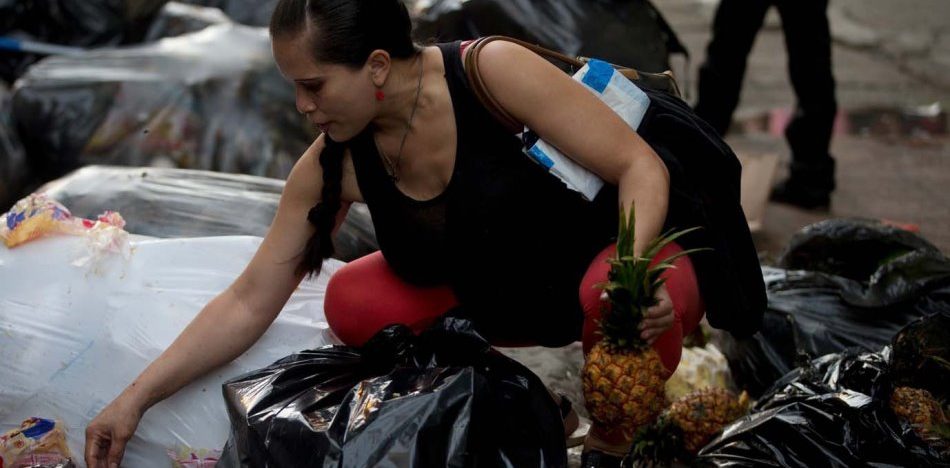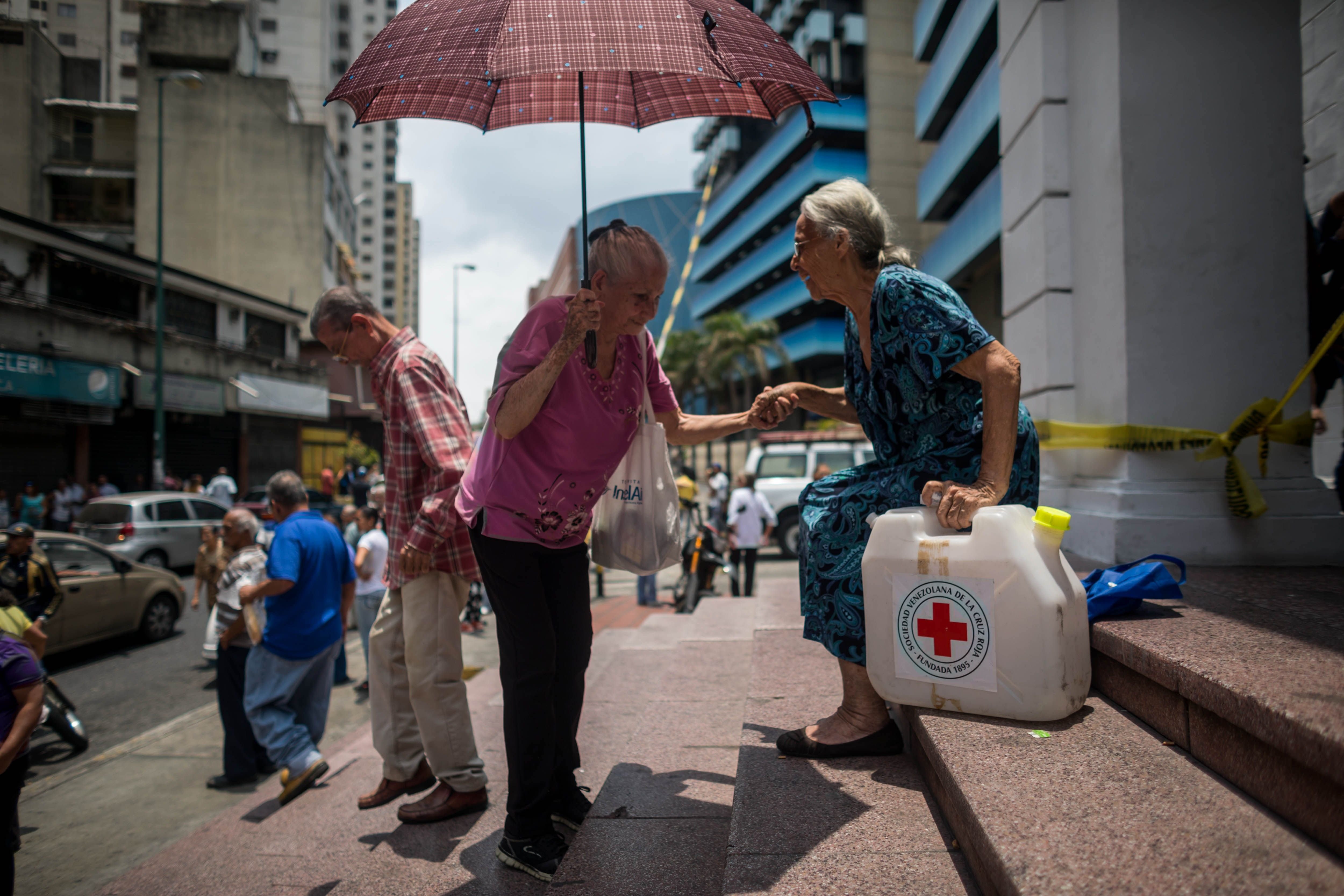
EspañolBeing in charge of a family, having a job and earning a minimum wage but not being able to feed your loved ones is now the harsh reality for hundreds of Venezuelans across the country.
Venezuela is in a crisis that continues to worsen, and with it comes an increasing number of Venezuelans — from the homeless to people with steady jobs — that are digging through the trash to find food.
Food shortages and Venezuelans’ decreasing purchasing power have been attributed to the phenomenon, which has resulted in weight loss for over 70 percent of the country.
Venezuelans affected by this situation earn minimum wages, but also own their own homes. Some of them are elderly people who don’t earn enough anymore to cover basic needs.
Venezuelans in various parts of the country have taken up an initiative to feed people who dig in garbage dumps.
The “Make the Difference” movement was started by Diego Prada in Caracas. They distribute soups, sandwiches and local corn flower bread in the streets of the capital.
In an interview with PanAm Post, Prada said the most shocking thing about the initiative was seeing the number of hungry citizens increasing over the last year, and realizing that 1,000 plates isn’t enough.
Prada said he has seen mothers cry as they accept a bowl of soup, which they can use to feed their children.
The founder of “Make the Difference” pointed out that there are not only homeless people scavenging among the garbage, but also grandparents and blue collar workers.
- Read More: Ecuador Elections: Outsider Lasso Poised to Defeat Leftist President Correa’s Candidate
- Read More: Stability, not Socialism, Made Rafael Correa a Popular Leader
“There are Venezuelans who have jobs and you can still see them poking through the garbage because the money they earn does not last the 30 days of the month,” he said.
“It’s amazing how priorities are changed,” he said. “If they are large families, the dishes are first given to the children, then the women and ultimately the men.”
He said though they sometimes feed the same people, they are always seeing new faces as well.
The initiative is not only taking place in the capital. The state of Carabobo in the central region of the country has seen Father Miguel Romero work through the “Foundation Señor Que Todos Escuchen Tu Voz” (Lord, may all hear your voice) program to deliver at least 200 soups to people every weekend.
Romero explained to PanAm Post how sad it is to know that it’s not only homeless people roaming the streets, but Venezuelans with low incomes who have no choice but to approach restaurants and bakeries in hopes of getting something extra at the end of the day.
“Between five and six in the afternoon they approach the trash to check if there are leftovers,” Romero said.
The priest stressed that many of those who look through the garbage initially did it to search for items to sell, but during those searches found edible waste that was worth taking advantage of. Now, it is common practice.
“We used to prepare solid food like meat, rice and other things, but we have seen that the number of hungry people has increased and soup feeds more,” he explained. “We have found desperate people, it is a very difficult scenario.”
“Everyone should have the ability to obtain their food in a more dignified way,” he added. “Restaurants and bakeries should cooperate more and instead of throwing away food, they could donate and organize.”
Animal Depredation
Venezuelan hunger and malnutrition have caused the population to seek alternatives to food and avoid going to the trash to eat.
Researchers at the University of Zulia revealed that protected bird species have become the most recent victims of the crisis in Venezuela.
In the Zulia state dump, dogs, cats, donkeys, horses and pigeons have lain dead and dismembered since last year, are peeled or torn into pieces, with signs of having been eaten.
The university researchers said dozens of slow-moving creatures, classified as “vulnerable” by the International Union for Conservation of Nature, have also been slaughtered for food.
For a Venezuelan family, buying food has became an uphill battle. In fact, the quality of life survey, Encovi, said 93.3 percent of the households consulted claimed to lack enough income to purchase food.
 Versión Español
Versión Español











